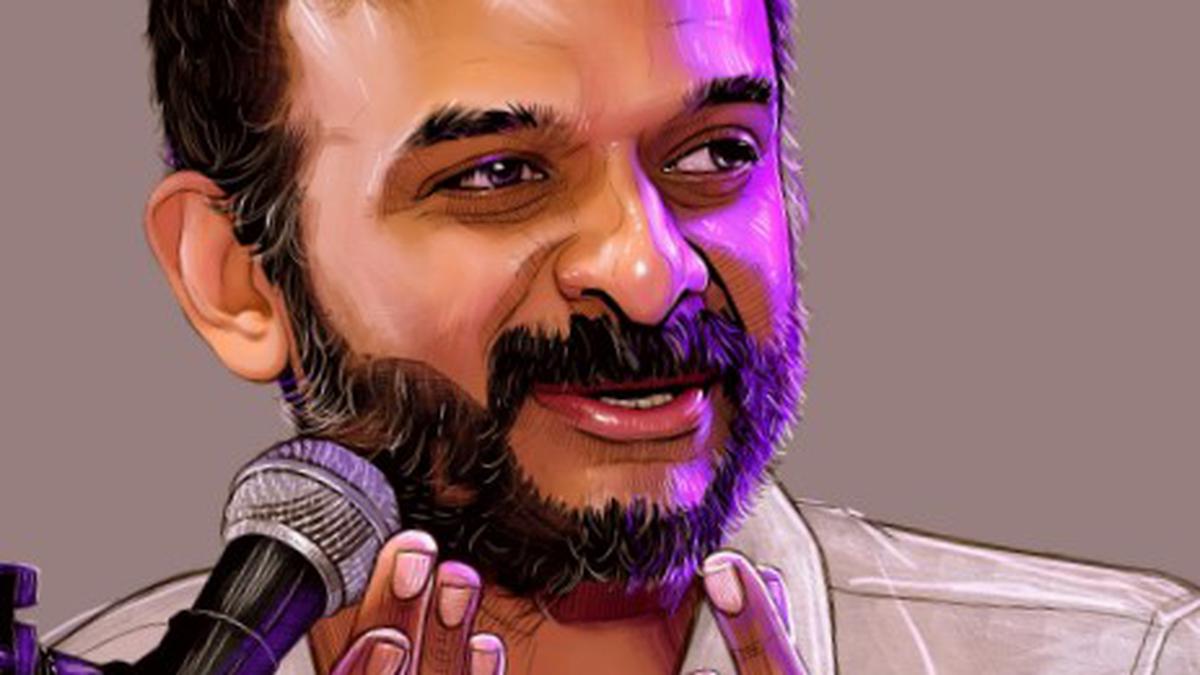
T.M. Krishna | The dissident vocalist Premium
The Hindu
The Hindu profiles on T.M. Krishna on March 31, 2024
If two hypothetical roads diverged in the mature Carnatic woods, T.M. Krishna took the one less travelled by, and that has made all the difference. India is no stranger to controversies about awards that are given for meritorious achievement, and yet, seldom have we seen as much flap as was witnessed after the Music Academy in Chennai announced that, this year, it would confer its top honour — the Sangita Kalanidhi award — on the Carnatic vocalist.
The award has always been widely considered to be the ‘highest accolade in Carnatic music’. Conferred by an institution that has been in existence for nearly a century, at the annual conference in Chennai’s most salubrious season in Margazhi, artistes have accepted it with a Bhakti akin to what they might employ on a Thyagaraja kriti.
To understand the opposition to Krishna, comprehending the cultural and historical context is essential.
The idea of a Music Academy originally emerged as an offshoot of the All India Congress Session held in Madras in December 1927 as an institution that would set the standards for Carnatic music. It was inaugurated the next year. In 1929, it started hosting annual conferences on music, which in turn spawned the December music festival of Madras, known popularly as the Kutchery season. The format is a series of concerts across the city conducted in an intensive month-long festival that attracts both the cognoscenti and the common people, drinking in the performances, ticketed or free based on economic capacity, equally possessive of their own fest in their own backyard.
Was this feeling of possession truly universal? Or was this an esoteric stratosphere that, through deliberate plan and design, kept some out? It was here that Krishna, a prodigy who gave his first Carnatic concert at the age of 12 at a noon slot in the Music Academy, branched out on the path that has brought him both awards/plaudits and condemnation, in possibly equal measure.
Krishna himself was born in this crucible of culture, in Madras, 48 years ago, and was educated at The School, run by the Krishnamurti Foundation, with a liberal pedagogical outlook, that urges students to “learn and grow in mindful relatedness”. Initially, he got a hand up from his uncle T.T. Vasu, an industrialist (son of the former Finance Minister T.T. Krishnamachari), who was then a member at the Academy. A privilege that he acknowledged as his now famous awakening dawned, and one he sought to question, even counter, shaking at the roots of the system he was a symbiotic part of.
In retrospect, his grooming and education set him on this inevitable path of introspection. But some critics believe it was prep work on his books that set him askew. His first book Voices Within (2007), with singer Bombay Jayashri, was a coffee table book on Carnatic music maestros. It was his second book A Southern Music: The Carnatic Story (2013) that first hinted at the schisms in Carnatic music that Krishna was beginning to see.













